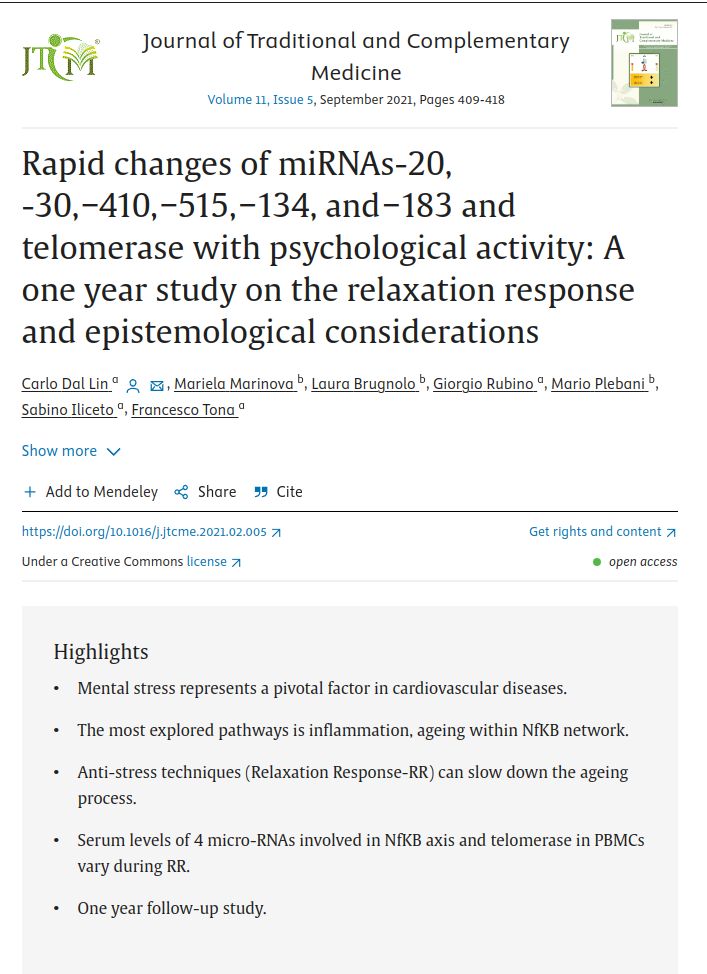Background and aim
Mental stress represents a pivotal factor in cardiovascular diseases. The mechanism by which stress produces its deleterious effects is still under study, but one of the most explored pathways is inflammation-aging and cell senescence. In this scenario, circulating microRNAs appear to be regulatory elements of the telomerase activity and alternative splicing within the nuclear factor kappa-light-chain-enhancer (NF-κB) network. Anti-stress techniques appeared to be able to slow down the inflammatory and aging processes. As we recently verified, the practice of the relaxation response (RR) counteracted psychological stress and determined favorable changes of the NF-κB, p53, and toll-like receptor-4 (TLR-4) gene expression and in neurotransmitters, hormones, cytokines, and inflammatory circulating microRNAs. We aimed to verify a possible change in the serum levels of six other micro-RNAs of cardiovascular interest, involved in cell senescence and in the NF-κB network (miRNAs −20, −30, −410, −515, −134, and −183), and tested the activity of telomerase in peripheral blood mononuclear cells (PBMCs).
Experimental procedure
We measured the aforementioned molecules in the serum of patients with ischemic heart disease (and healthy controls) immediately before and after a relaxation response session, three times (after the baseline), in one year of follow-up.
Results
According to our data, the miRNA-20 and -30 levels and PBMCs-telomerase activity increased during the RR while the −410 and −515 levels decreased. During the RR sessions, both miRNA-134 and -183 decreased.
Conclusion
The mediators considered in this exploratory work appeared to vary rapidly with the psychological activity (in particular when focused on relaxation techniques) showing that psychological activity should be part of the future research on epigenetics. Epistemological perspectives are also discussed.

